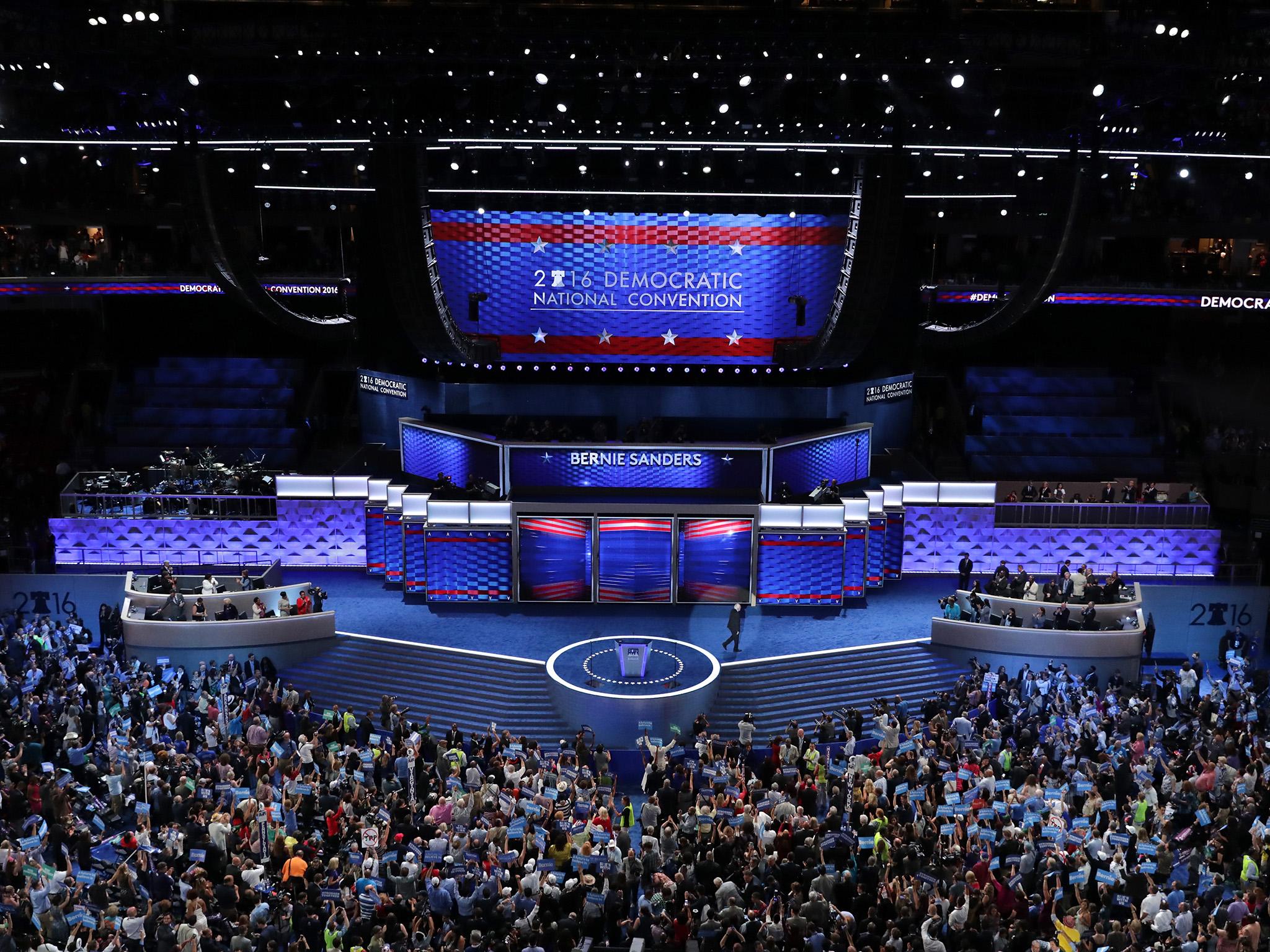Did Russia really hack Democratic National Committee emails to boost Trump's chances?
The billionaire has praised Vladimir Putin for his strength and decisiveness in the past – but does that mean the US has a Siberian candidate on its hands?


America's extraordinary 2016 election has already ventured where no others have trod. And now there’s another first: one campaign accusing the rival candidate of being in cahoots with the country’s main global opponent – in other words that Vladimir Putin is working to secure the election of his and Russia’s friend, Donald Trump, to the White House.
Last weekend, doing the rounds on the Sunday talk shows, Hillary Clinton’s campaign manager Robbie Mook made the conspiracy theory official. He accused Russian hackers of leaking emails from the Democratic National Committee showing that the party was secretly working all-out to deny her rival Bernie Sanders the nomination.
So much in fact had long been suspected, but the effect was as predictable as the timing of the leak was perfect – done immediately after the fractious Republican convention in Cleveland, on the eve of this week’s Democratic gathering in Philadelphia that was supposed to be the epitomy of brotherly love.
Instead, Sanders’s diehard supporters were outraged and mutinous. The image of a united party vanished. With extreme difficulty, party managers patched things over on the convention’s first night, thanks to a commanding speech by Sanders and a hymn of praise to Hillary by the First Lady Michelle Obama.
And who was responsible for the leak? Almost certainly, experts say, the Russians, directly or indirectly. For one thing, the Kremlin has a long record in doing this sort of thing, meddling in internal politics across Europe. Back when the DNC hack became public, in mid-June, Russian agents were identified as prime suspects.
The Kremlin has ample reason to desire a Trump victory. Russia’s prime geopolitical objective is to bring about the weakening or disintegration of Nato, and reassert control of countries that belonged to the old Soviet Union – and the Republican candidate’s stated views would clearly further that aim.
Not only has he praised Mr Putin as a man of strength and decisiveness (and received compliments from the Russian leader in return). Only last week, in an interview with The New York Times, Trump said the US may not defend the Baltic states, Nato’s newest members who are now under steady threat from Russia, unless they paid their way in the alliance.
Nor is that all. Mr Mook further claimed that Trump’s agents had weakened part of the Republican platform – a loose equivalent of a British party’s election manifesto – that had promised tough action against Russian predations in Ukraine, another former Soviet republic that Moscow is seeking to bring back into the fold by all available means.
None of this is to suggest that America has a “Siberian candidate” on its hands: a real life 21st century equivalent of the villain in The Manchurian Candidate, John Frankenheimer’s 1962 masterpiece, who had been captured by the Chinese and Russians in the Korean war and brainwashed, before being returned to the US as a sleeper agent. For one thing, it is impossible to imagine Donald Trump being brainwashed by anyone.
Needless to say, the Trump campaign utterly rejects every insinuation. Donald Jr, the candidate’s son described them as “lies”, telling CNN that Mr Mook “should be ashamed of himself…. If a Republican did that, they’d be calling for the electric chair". Paul Manafort, the Trump campaign chairman, said talk of Russian help was “absurd".
But there is more fodder for the conspiracy theorists – suggestions that the perceived community of interest between Mr Trump and Russia may extend beyond their neatly dovetailing views of Nato.
First and foremost, the Manhattan property mogul is a businessman and much speculation surrounds his interests in Russia. In the past, he has spoken effusively about expanding into Russia, with the help of Soviet investors. Back in 2008, Donald Jr said that Russia made up “a pretty disproportionate cross-section of a lot of our assets".
Whether that remains the case is unknown. Mr Trump has refused to make public either his business records or his tax returns, which might throw light on the subject. There is also Mr Manafort’s own past as a lobbyist, when one of his clients was Viktor Yanukovych, the former pro-Russian president of Ukraine, ousted in the 2014 revolution that led to Russia’s annexation of Crimea.
What is certain is that this email affair – just like the one that ensnared Hillary Clinton over her use of a private email server for official State Department business – will run and run. Once again the FBI is investigating, and similarities have emerged with hacks into unclassified systems at the White House and State Department.
According to reports, Moscow’s digital fingerprints are all over the DNC cyber-intrusion. The clues, it is said, do not point directly to the Russian Government, rather to entities who have worked on its behalf (which of course allows the Kremlin a degree of deniability). It may be not until after the 8 November election that the FBI releases its conclusions.
In the meantime one can only ponder Mark Twain’s celebrated dictum that while history does not repeat itself, it rhymes. Four decades ago, a break-in at the DNC led to the biggest political scandal in political history, ultimately bringing down a president. That intrusion was physical. This one was electronic. But who knows where it will end?
Join our commenting forum
Join thought-provoking conversations, follow other Independent readers and see their replies
Comments
Bookmark popover
Removed from bookmarks